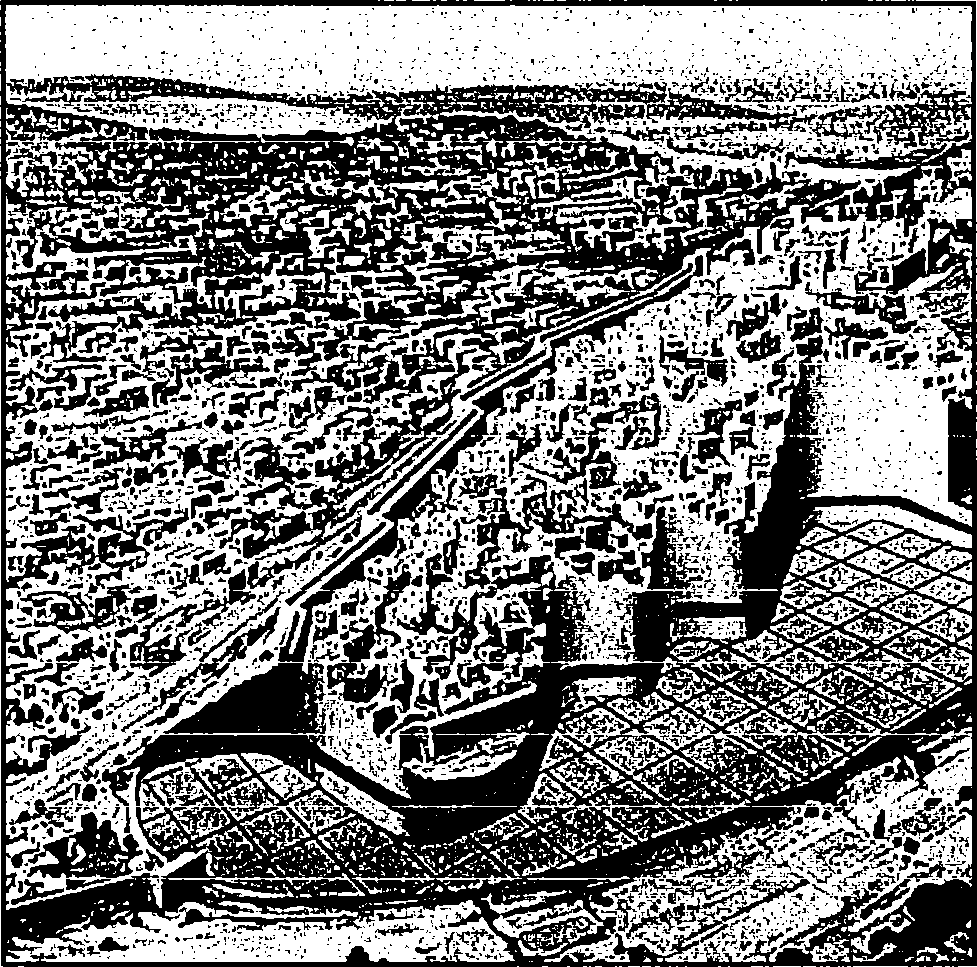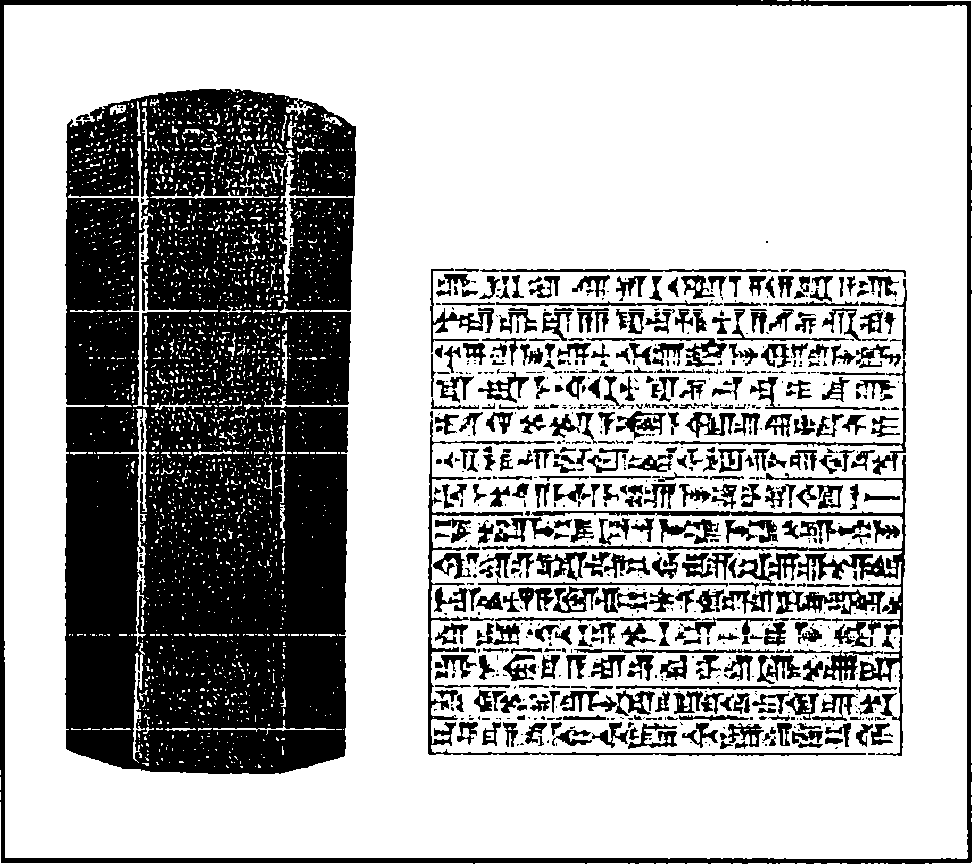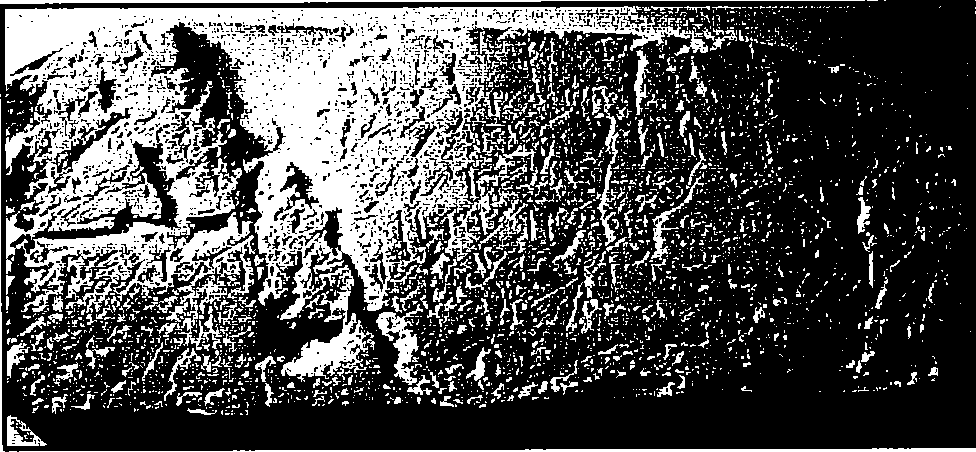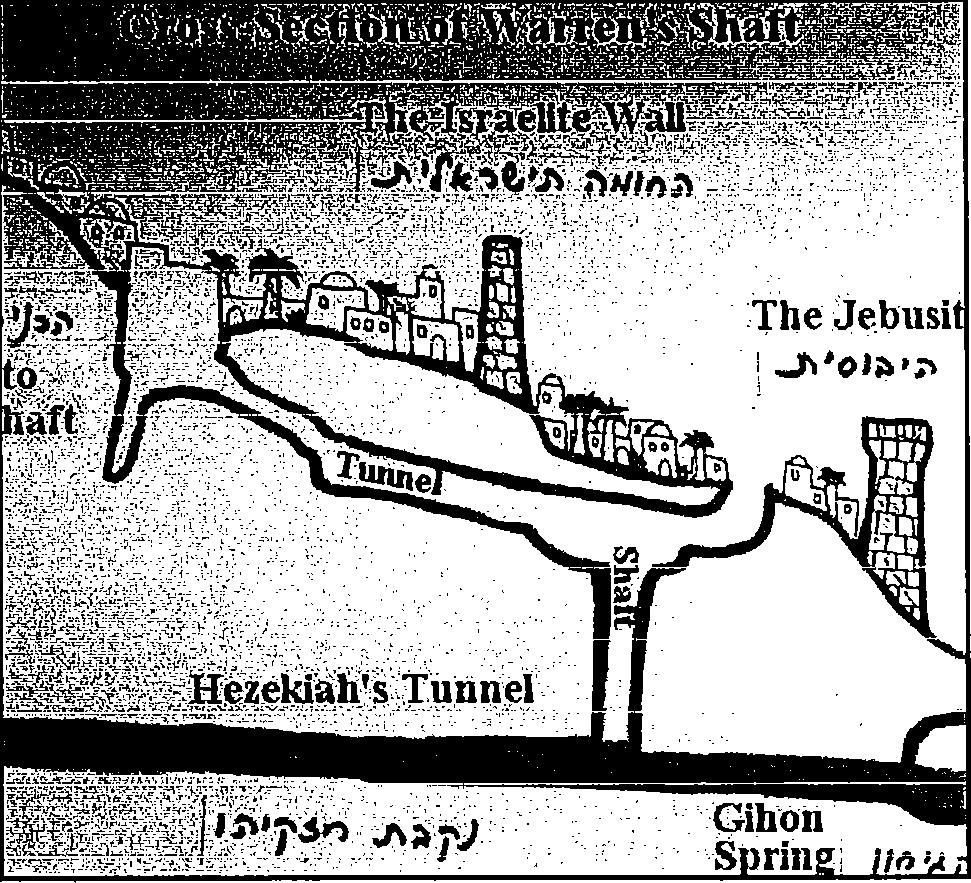Hezekiah’s Song of Trust
“I will defend this city, to save it, for mine own sake, and for my servant David’s sake” (2 Kings 19:34).
Sandwiched in between two wicked kings, Ahaz and Manasseh, Hezekiah was a reformer king in Judah. Although wavering at times in his faith, all in all he was one of the most remarkable rulers over the southern kingdom.
Among the biblically recorded incidents in his reign was his defense of the city of Jerusalem from the siege of the city by Sennacherib of Assyria. In preparation for the impending onslaught, he “strengthened himself, and built up all the wall that was broken, and raised it up to the towers, and another wall without, and repaired Millo1 in the city of David, and made darts and shields in abundance” (2 Chronicles 32:5).
He also constructed the “Tunnel of Hezekiah,” a 1,750 foot conduit that snaked under the Ophel ridge, connecting the spring of Gihon outside the eastern walls with the Siloam tunnel just inside the eastern double wall. Then he built a fortified house over the Gihon, thus providing an ample supply of water to the residents of Jerusalem while denying the same to the besieging army (see cutaway illustration).

Cutaway of Hezekiah’s Tunnel
PSALM 46 – A SONG OF VICTORY
Psalm 46 is ascribed by many as being composed by Hezekiah as an expression of assurance that God would give the victory over the invading army. It consists of three verses and a refrain,2 each marked by the Hebrew word Selah, meaning “pause,” not so much a pause in the instrumental music, but for the singer to pause and note the connection between two related thoughts. While sometimes used antithetically to denote a contrast, it is more often used, as in Psalm 46, in the synthetic sense of adding a further development of thought. These refrains occur after verses 3, 7, and 10, with the first being a reprise of verse 1.
The heading for the Psalm rightly belongs as a subscription of Psalm 45, as do all titles beginning with “To the Chief Musician.” It is not a “title” at all but a post-script note to the compiler as to where to file the tune, by designating which groups of musicians were to perform it.
The theme of the three stanzas can be expressed thusly:
(1) Verses 1-3 – An expression of supreme confidence in God’s delivering power.
(2) Verses 4-7 – Describes their current situation in poetic and metaphoric terms.
(3) Verses 8-11 – The voice of Jehovah declaring the intentions of God.
THE FIRST STANZA
The song begins with the refrain that may have been sung again after verse 3. It is a simple statement of confidence: “God is our refuge and strength, a very present help in trouble.” It was with this assurance that he could utter the words of 2 Chronicles 32:7, 8: “Be strong and courageous, be not afraid nor dismayed for the king of Assyria, nor for all the multitude that is with him: for there be more with us than with him: With him is an arm of flesh; but with us is the LORD our God to help us, and to fight our battles. And the people rested themselves upon the words of Hezekiah king of Judah.”
The “sea” to which Hezekiah refers is an apparent reference to the hordes of Assyrians that had overrun so much of Israel and the “mountains” may have reference to the 46 cities which the invading king had claimed to conquer with some 200,150 people in the famous Cylinder of Sennacherib.

Sennacherib’s Cylinder with the Original Text
The waters roaring speak of the boastful claims of Sennacherib’s spokesman, Rabshakah, the emissary who was sent to discourage the Israelites from putting up a resistance to the besieging troops. Hezekiah’s bold and confident response was an adequate rebuttal to this attempt at psychological warfare and the residents of Jerusalem waited for God to give them deliverance.
THE SECOND STANZA
The second strophe begins by mentioning an unnamed river whose running waters made glad the “city of God,” Jerusalem. Among the definitions of the Hebrew nahar (Strong’s 5104), translated “river,” given by Brown, Driver, and Riggs, is an underground stream. The word Peleg (Strong’s 6388), translated “streams,” is given as “channel” in the same source. The water supply for the Holy City came from the spring Gihon just outside the eastern wall. Inas much as there are no year-round, free-flowing rivers in Jerusalem, only the small seasonal brook of Kidron, it seems not unreasonable that the river of Psalm 46:4 was none other than the one-third-mile tunnel that Hezekiah’s stone cutters had carved. Assuring them of an adequate supply of fresh water, this river during the siege of Sennacherib certainly did “make glad” the residents of the eternal city.
The tunnel diverted the waters of the Gihon springs from the Kidron valley, south along the Ophel ridge of Mount Zion and then westward under the slope to a cistern known as the Upper Pool. From there a channel was dug to join it to the Pool of Siloam, virtually making it one large reservoir (Isaiah 22:11).
An inscription describing the precision of the tunnel workers digging the serpentine channel from both directions and meeting in the middle was found in 1927 (see illustration below). A translation of it is given by Robert Coote in his book, Siloam Inscription, and reads as follows:
“… the tunneling; and this is how the tunneling was completed: As [the laborers employed] their picks, each crew toward the other, and while there were still three cubits remaining, the voices of the men calling out to each other [could be heard], since it got louder on the right [and left]. The day the opening was made, the stonecutters hacked toward each other; pick against pick. And the water flowed from the source to the pool [twelve] hundred cubits, (despite the fact that) the height of the rock above the stone cutters’ heads was one hundred cubits.”

Hebrew Inscription
This gave the city access to the water not only by the new enlarged Pool of Siloam, but also by the more arduous gutter route from higher up the mount which is now called Warren’s Shaft after the archaeologist who unearthed it. The schematic below displays these two access routes.

Warren’s Shaft
Hezekiah’s assurance that God would help her “right early” (literally, “at the turning of the day”) proved to be prophetically accurate. Then “the angel of the LORD went out, and smote in the camp of the Assyrians an hundred fourscore and five thousand: and when they arose early in the morning, behold, they were all dead corpses” (2 Kings 19:35).
The raging and proud boasting of the Assyrian generals meant little as long as God was with Judah. He gave the command and these strong powers of earth melted under his mighty hand. Once again the refrain bursts forth, “The LORD of hosts is with us; the God ofJacob is our refuge.” In the words of Alfred Lord Tennyson:
Like the leaves of the forest when the summer is green,
That host with their banners at sunset were seen:
Like the leaves of the forest when autumn hath blown,
That host on the morrow lay withered and strown.
And the might of the Gentile, unsmote by the sword,
Hath melted like snow in the glance of the Lord.
THE THIRD STANZA
The last verse of this ode to victory echo the words of Jehovah himself. “Be still and know that I am God: I will be exalted among the heathen; I will be exalted in the earth” (verse 10). The numerous sieges of the Assyrian invasion had finally come to an end. The foe that man could not de feat was like dust in the hands of Israel’s God. Truly he had made the Assyrian wars to cease. He had broken the bow asunder and burned the chariots with fire. It was not for the sake of the wayward Israelites, but as our theme text so aptly phrases it, “I will defend this city, to save it, for mine own sake, and for my servant David’s sake” (2 Kings 19:34).
THE ANTITYPE
The Bible speaks of a time when an overwhelming enemy force will once again surround Israel, a time when God says “I will gather all nations against Jerusalem to battle” (Zechariah 14:2). But he assures them as he assured Hezekiah, “Then shall the LORD go forth, and fight against those nations, as when he fought in the day of battle” (Zechariah 14:3). Then it will be as irrelevant as to how many nations the invading forces have subdued, as was Sennacherib’s boast of having conquered 46 cities in ancient Israel.
The great mountain kingdoms of the past 3000 years will be cast into the sea of a disenchanted and anarchic populace and become as islands (mountains surrounded by a sea) un til finally, in the final plague of Revelation, every island will flee away and the mountains be not found (Revelation 16:20).
Israelites indeed, those who have faith in God, will not fear for they will have a river whose streams will make them glad, they will have their spiritual Hezekiah’s tunnel – the word of God. ·
As the waters from that tunnel emptied into the newly dug “upper pool” which was then connected by a channel to the previously constructed Pool of Siloam, so the fresh waters of the New Testament will be joined to explain the previously revered words of the Old Testament. With hearts ready for news of their Messiah, he, as the promised Michael of Daniel 12:1, shall deliver his ancient people. What refreshing news from that ever-springing fount of divine promises. Then Israel will join in the glorious refrain, “The LORD of hosts is with us, the God of Jacob shall be our refuge.”
As God has helped his spiritual people with an heavenly resurrection at the turning of her morning, so he will also help his natural people at the dawn of their new day. Then will be fully ushered in that grand Millennium of which it is written, “Weeping may endure for a night, but joy cometh in the morning” (Psalms 30:5).
No matter how loudly the heathen rage, they are no match for the commanding voice of Jehovah. His is the voice of which Zephaniah wrote, “The great day of the LORD is near, it is near, and hasteth greatly, even the voice of the day of the LORD: the mighty man shall cry there bitterly” (Zephaniah 1:14). The returned Christ echoes that same voice (1 Thessalonians 4:15).
That battle will be the final warfare when man turns his mighty munitions against fellow man. When “he maketh wars to cease” (Psalm 46:9) the vast military-industrial com plex, if there still be one, will be turned into useful production, beating “their swords into ploughshare and their spears into pruning hooks” (Isaiah 2:4).
When God shall again smite the foes of Israel as he smote the vast invading Assyrian forces in Hezekiah’s day, the song of victory will reach its final crescendo. “So the house of Israel shall know that I am the LORD their God from that day and forward. And the heathen shall know that the house of Israel went into captivity for their iniquity: because they trespassed against me, therefore hid I my face from them, and gave them into the hand of their enemies: so fell they all by the sword” (Ezekiel 39:22, 23).
Once again the grand refrain is sounded, “The LORD of hosts is with us; the God of Jacob is our refuge.”
Selah – pause and think about it.
– Carl Hagensick
(1) “A fragile 2.23-acre section of fill, known as the Milla, constructed by the Jebusites, increased the settleable area of Jebusite Jerusalem (later, city of David) by roughly 26%, from 35 to 48 dunams [8.64 to 10.87 acres], and markedly improved their defenses in the area of the Gihon Spring. The very nature of the Millo’s design, however, required its continuous maintenance. Any undermining of its underlying retaining walls risked the collapse of the whole system. This made the Milla vulnerable to adverse weather, earthquake, and enemy action.” (Germano, Michael Perry, The Ancient Church of the Apostles, 2003).
(2) See Notes on the Bible of John Meggison, Psalm 46
